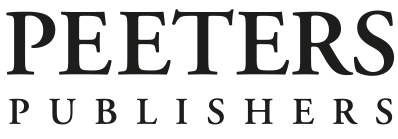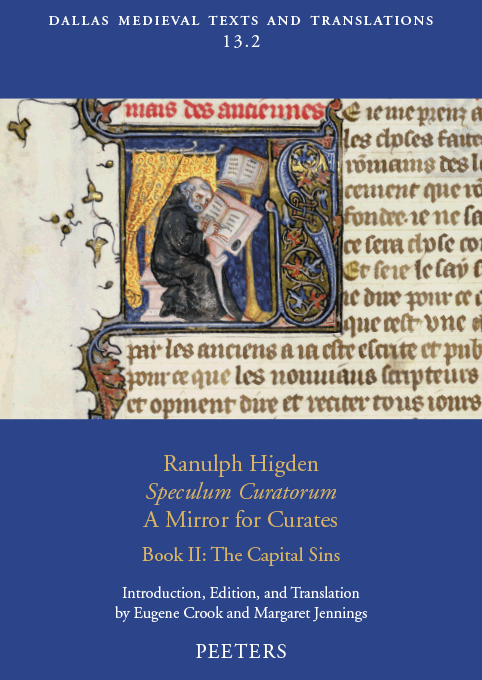

 0
EN
0
EN

Ranulph Higden's Speculum curatorum was composed in England about 1350. Book II treats the types and originating circumstances of all sin, but mostly focuses on the seven capital sins: pride, avarice, lust, anger, gluttony, envy, and sloth. Each is discussed with a thoroughness appropriate to the text's function as a manual of instruction for parish clergy.
None of the sins is treated lightly, as any one of them could prevent the soul from achieving its eternal goal. The length of each discussion is also indicative of the sin's effect on Church life and discipline. Avarice - together with its worrisome components of usury and simony - is of special concern and consequently occupies about a quarter of the total commentary.
Higden's exploration of the capital sins differs in format and purpose from earlier books on the same topic. The libri poenitentiales of the sixth through twelfth centuries usually just matched a sin with its recommended punishment; the summae confessorum of the thirteenth and fourteenth centuries were mostly oriented to helping a confessor understand how contrition, confession, and satisfaction were necessary components of the sacrament of penance. Higden wants both clerics and lay people to come face to face with all of the destructive aspects of sin. At times, as in the chapter on drunkenness, he weaves the psychological and pastoral dimensions of a certain sin into his painstaking analysis. The manual's fifty-one chapters aim to assist both priest and people to know the blandishments of sin thoroughly and, because of this knowledge, to avoid them.



